Where does the coffee taste sour? are there any sour coffee beans that taste good?
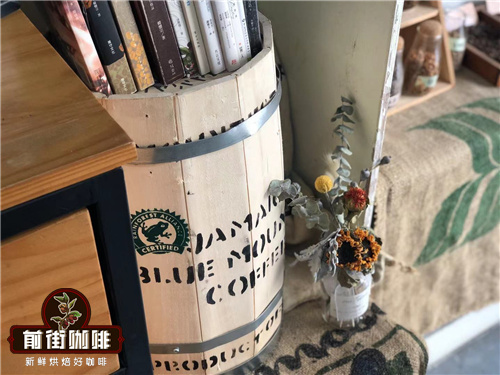
Professional coffee knowledge exchange more coffee bean information please follow the coffee workshop (Wechat official account cafe_style)
Qianjie believes that when many people enter a coffee shop to order coffee, in fact, many people are confused when looking at individual coffee from many countries or places of origin, so baristas usually ask guests what kind of coffee flavor they want. Qianjie noticed that many guests will use bitter and sour words to express the coffee flavor they want.
Qianjie doesn't know how to understand these two words. Generally speaking, the sour or bitter taste of coffee is largely determined by coffee genes. For example, beans produced in Africa are generally more sour than beans grown in Brazil, or beans grown in Colombia are more bitter than beans grown in Kenya. But this origin can only determine part of the taste and flavor of the coffee, such as the degree of roasting and the parameters used when brewing can also largely determine the taste of the coffee.
To put it simply, the sour quality of the beans that are lightly baked will be more obvious, and the bitterness of the beans that are deeply baked will be more obvious. Therefore, the roasting degree of the same bean and the flavor and taste of the brewed coffee are also very different. Just like the front street in the baking water to wash the coffee beans in the Yega Sheffield area, in order to highlight the acidity of the Yega Sheffei coffee beans, from the end of the first explosion to the second explosion to stop baking, it is rarely roasted to the second explosion dense. When roasting Mandenin coffee in Sumatra, Qianjie usually chooses to roast to the extent from the beginning of the second explosion to the end of the second explosion to highlight the unique herbal flavor of Mantenin.
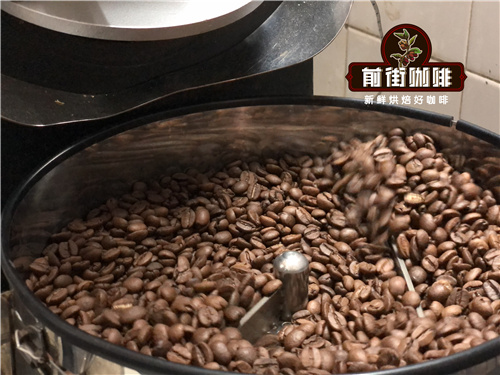
Therefore, Qianjie will introduce some sour coffee beans to you today. When it comes to areas with obvious acidity, it is necessary to mention coffee beans from African producing areas, such as those from Ethiopia, Kenya and Tanzania, where the acidity of coffee beans is obvious.
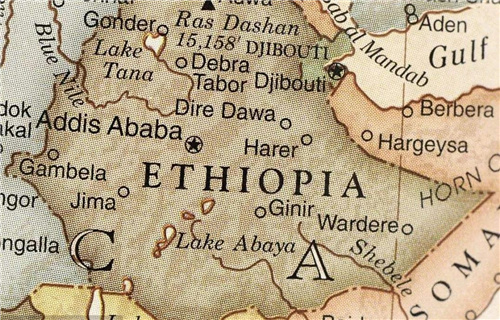
The front street starts with the coffee beans in the Yegashafi producing area in Ethiopia. The reason why Qianjie chose the coffee beans in this producing area is because the lemon-citrus-like acidity of the Yegashafi producing area is famous, even for the novice who is new to the coffee. It is very easy to taste the lemon-like acidity of this coffee. For example, in the Qianjie coffee shop, washed Yega Xuefei coffee beans are very popular, hand-brewed coffee with lemon acidity, there is a faint smell of jasmine.
There are also two new ones on Front Street recently from Essel coffee beans, one is COE#22, from the Sidamo Arsi area, this is a sun-dried iron pickup. One is the champion of the TOH washing group from the Wulaga producing area of Guji, and its variety is the original species of Ethiopia. These two Ethiopian coffee beans are treated differently, one is washed and the other is treated in the sun, so their acidity is also different.
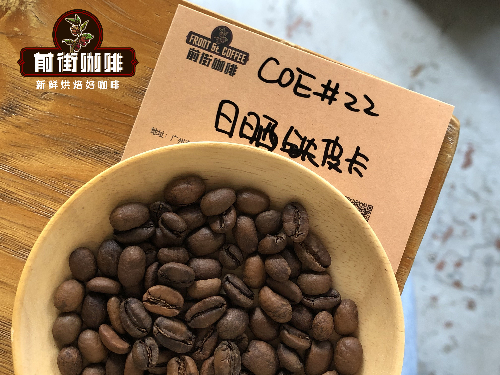
After the Qianjie baker baked these two Ethiopian coffee beans, Qianjie will conduct a cup test in eight to 24 hours. The cup test found that COE#22 coffee tastes soft and smooth, with some strawberry and lychee sour and sweet, due to the sun treatment with fermented wine flavor, creamy smoothness, Yu Yun Shi honey sweetness. On the other hand, the sour quality of the champion coffee in the TOH washing group is more acidic than that of citrus, a touch of jasmine, and the sour and sweet feeling of grapefruit tea.
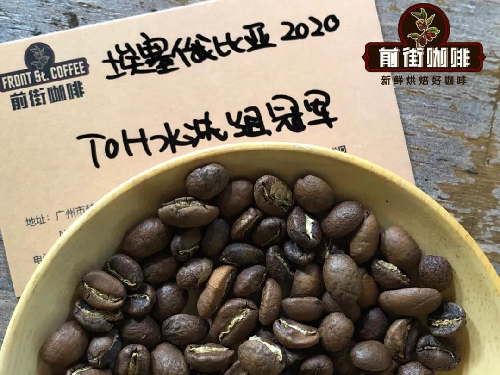
The acidity of Ethiopian coffee is different from that of Kenyan coffee. Take Asaria of Asali Honey processing Plant in Thika, Sika, Kenya. This Kenyan coffee is roasted to the same extent as Ethiopian coffee beans. Qianjie will use light roasting to highlight the bright acidity of Kenyan coffee beans. Qianjie tested this coffee bean in the cup and agreed that its overall flavor is the taste of black plum, and the fresh acidity of virgin fruit is very different from that of Ethiopia, and each has its own characteristics.
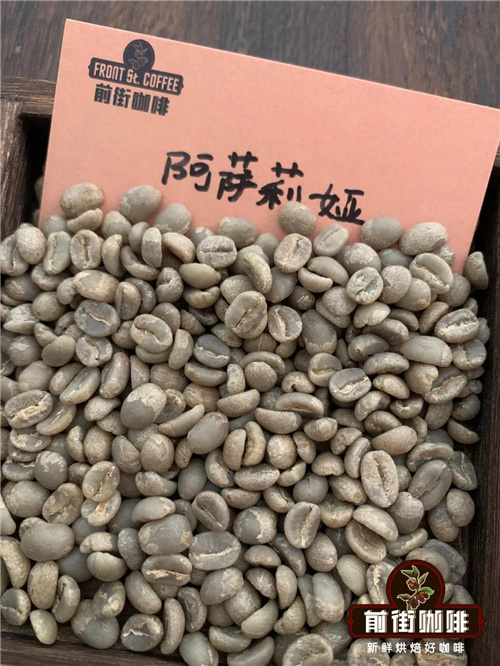
Qianjie likes to brew the flavor of individual coffee by hand, and when brewing this Kenyan Asaria coffee, you will smell the wet fragrance during the 30-second steaming phase with 30 grams of water, similar to the smell of ripe tomatoes and flowers. Then 125 grams of water is injected around the circle with a small flow. When the water level begins to drop and the powder bed is exposed, the inlet of the water injection is stopped at 225 grams, and the filter cup can be removed after the water level drops. When you finally get out of the cup, don't moisten the cup and shake the coffee pot so that the concentration of the coffee is consistent. The acidity of this cup of Kenyan coffee is more like the sour quality of virgin fruit and black plum, which is very bright and adopts Kenyan 72-hour washing method, so the Kenyan taste is very clean and juicy, and the aftertaste is more like yellow sugar.
There is another African country where coffee beans are also very sour, that is, Tanzania. Coffee beans are rarely drunk in this country. Generally speaking, Tanzanian coffee is mainly grown in Kilimanjaro drinking southern Tanzania. The acidity of the coffee in these coffee producing areas is different, such as the coffee in the south is more obvious, and the acidity is softer, while the acidity of Kilimanjaro coffee is brighter and mellow, with mineral water-like sweetness. It is precisely because the mellow texture and acidity of Tanzanian coffee is not as strong as that of washing Yega Xuefei, but with a strong flavor, so Tanzanian coffee is also called "coffee gentleman".
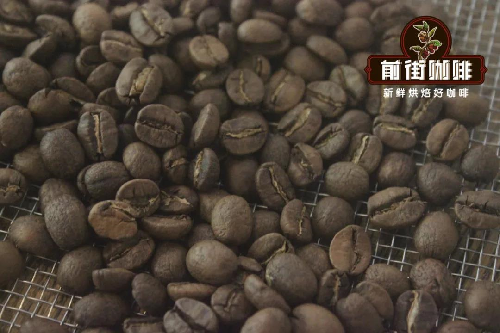
Qianjie also put on shelves a coffee from the Kilimanjaro producing area of Tanzania. The coffee is planted between 1300 and 2000 meters above sea level. The variety is iron pickup, which is treated by common washing. Because the water content of the coffee beans in this area is relatively large, Qianjie deliberately prolongs the baking time during baking to heat the bean surface and core evenly, using moderate baking to highlight the sweetness and unique acidity of the beans and the aroma of flowers and fruits. During an explosion, the caramel reaction was prolonged to make its sweetness more prominent.
However, during the cup test in Qianjie, we also found the disadvantage of this coffee from Tanzania, that is, its acidity is moderately low after cooling down, with a little astringency, but not at high temperatures. Hot coffee tastes more citrus, nutty, honey and cream, and when the temperature drops, it is more acetic acid, and medium to high sweet.
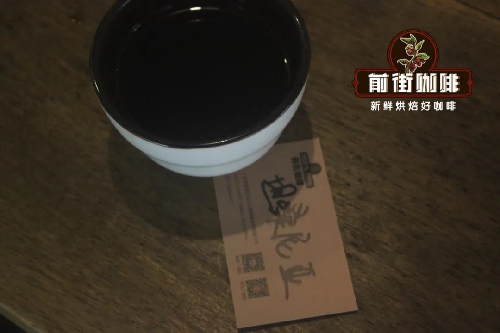
So, if you like sour coffee beans, you can first consider the coffee beans from Africa, Kenya and Tanzania. The coffee beans from these countries are more sour. Of course, the acid quality in other places is also very good. You can choose the best coffee flavor according to your favorite coffee flavor.
For more boutique coffee beans, please add private Qianjie coffee on Wechat. WeChat account: kaixinguoguo0925
Important Notice :
前街咖啡 FrontStreet Coffee has moved to new addredd:
FrontStreet Coffee Address: 315,Donghua East Road,GuangZhou
Tel:020 38364473
- Prev
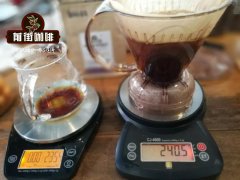
Where the coffee beans are sour _ the coffee beans are recommended in the producing area _ how much is the sour coffee beans per pack
Professional coffee knowledge exchange more coffee bean information Please follow the coffee workshop (Wechat official account cafe_style) many people do not like sour coffee, like very mellow and even strong coffee. But if you want to be a coffee taster, the key to getting started is to recognize the acid in coffee. It must be noted that the more sour the coffee, the better. The sweet and sour substances in the coffee
- Next

Where are the coffee beans sour? What kind of coffee beans are not sour? Is the coffee sour or bitter?
Professional coffee knowledge exchange more coffee bean information please follow the coffee workshop (Wechat official account cafe_style) as a novice coffee, according to the need to sour? Or is it more fermented? For example, it tastes stronger or tastes lighter, so you can recommend the most suitable coffee according to the flavor characteristics of your own coffee treatment. I like sour coffee.
Related
- Detailed explanation of Jadeite planting Land in Panamanian Jadeite Manor introduction to the grading system of Jadeite competitive bidding, Red bid, Green bid and Rose Summer
- Story of Coffee planting in Brenka region of Costa Rica Stonehenge Manor anaerobic heavy honey treatment of flavor mouth
- What's on the barrel of Blue Mountain Coffee beans?
- Can American coffee also pull flowers? How to use hot American style to pull out a good-looking pattern?
- Can you make a cold extract with coffee beans? What is the right proportion for cold-extracted coffee formula?
- Indonesian PWN Gold Mandrine Coffee Origin Features Flavor How to Chong? Mandolin coffee is American.
- A brief introduction to the flavor characteristics of Brazilian yellow bourbon coffee beans
- What is the effect of different water quality on the flavor of cold-extracted coffee? What kind of water is best for brewing coffee?
- Why do you think of Rose Summer whenever you mention Panamanian coffee?
- Introduction to the characteristics of authentic blue mountain coffee bean producing areas? What is the CIB Coffee Authority in Jamaica?

